Fail To Pay In Enough Tax Withholding And Estimated Tax Payments For 2018? Relief May Be Available To You.
Fail To Pay In Enough Tax Withholding And Estimated Tax Payments For 2018? Relief May Be Available To You.
The IRS announced additional expanded penalty relief to taxpayers whose 2018 federal income tax withholding and estimated tax payments fell short of their total tax liability for the year.
At first on January 16, 2019 the IRS announced that the threshold for this relief was pre-paying and amount equal to 85% of your prior year’s tax to avoid a penalty (the law provides that you must have paid in an amount equal to 90% of your prior year’s tax). But not the IRS has lowered that threshold even further to an amount equal to 80% of your prior year’s tax to avoid a penalty.
This means that the IRS is now waiving the estimated tax penalty for any taxpayer who paid at least 80% of their total tax liability during the year through federal income tax withholding, quarterly estimated tax payments or a combination of the two.
Taxpayers who have already filed for tax year 2018 but qualify for this expanded relief may claim a refund by filing Form 843, Claim for Refund and Request for Abatement and include the statement “80% Waiver of estimated tax penalty” on Line 7. This form cannot be filed electronically.
The IRS figures that this expanded relief will help many taxpayers who owe tax when they file, including taxpayers who did not properly adjust their withholding and estimated tax payments to reflect an array of changes under the Tax Cuts and Jobs Act of 2017 (TCJA).
How Does The Penalty For Not Paying In Enough Apply?
Because the U.S. tax system is a “pay-as-you-go” system, taxpayers are required, by law, to pay most of their tax obligation during the year, rather than at the end of the year. This can be done by either having tax withheld from paychecks or pension payments, or by making estimated tax payments.
Usually, a penalty applies at tax filing if too little is paid during the year. This penalty is an interest-based amount approximately equivalent to the federal interest on the amount not paid in a timely manner.
Normally, the penalty would not apply for 2018 if tax payments during the year met one of the following tests:
- The person’s tax payments were at least 90% of the tax liability for 2018 or
- The person’s tax payments were at least 100% of the prior year’s tax liability, in this case from 2017. However, the 100% threshold is increased to 110% if a taxpayer’s adjusted gross income is more than $150,000, or $75,000 if married and filing a separate return.
For waiver purposes only, today’s relief lowers the 90% threshold to 80%. This means that a taxpayer will not owe a penalty if they paid at least 80% of their total 2018 tax liability. If the taxpayer paid less than 80%, then they are not eligible for the waiver and the penalty will be calculated as it normally would be, using the 90% threshold.
Importance To Preserve Records
Keep in mind that the IRS has up to three years to select a tax return for audit. The California Franchise Tax Board has up to four years to select a California State Income Tax Return for audit. In some cases this period is extended to six years. When a taxpayer is selected for audit, the taxpayer has the burden of proof to show that expenses claimed are properly deductible. Having the evidence handy and organized makes meeting this burden of proof much easier.
Essential Records to Have for a Tax Audit
If you are getting ready for a tax audit, one of the most important things to do is gather and organize your tax records and receipts. There’s a good chance that you have a large amount of documents and receipts in your possession. No matter how organized you are, it can be a daunting task to collect the right pieces and make sure that you have them organized and handy for the audit conference.
We have seen many tax audits that hinge on whether or not the taxpayer can provide proper documentation for their previous tax filings. A tax lawyer in Orange County or elsewhere can make sure that the documentation is complete and proper. By submitting this to your tax attorney in advance of the audit, your tax attorney can review your documentation and determine if there are any gaps that need to be addressed before starting the dialogue with the IRS agent.
So what are the most essential tax records to have ahead of your audit? Here are a few must-have items:
- Any W-2 forms from the previous year. This can include documents from full-time and part-time work, large casino and lottery winnings and more.
- Form 1098 records from your bank or lender on mortgage interest paid from the previous year.
- Records of any miscellaneous money you earned and reported to the IRS including work done as an independent contractor or freelancer, interest from savings accounts and stock dividends.
- Written letters from charities confirming your monetary donations from the previous year.
- Receipts for business expenses you claimed.
- Mileage Logs for business use of vehicle.
- Entertainment and Travel Logs for business activities.
What Should You Do?
You know that at the Law Offices Of Jeffrey B. Kahn, P.C. we are always thinking of ways that our clients can save on taxes. If you are selected for an audit, stand up to the IRS by getting representation. Tax problems are usually a serious matter and must be handled appropriately so it’s important to that you’ve hired the best lawyer for your particular situation. The tax attorneys at the Law Offices Of Jeffrey B. Kahn, P.C. located in Orange County (Irvine), San Diego County (Carlsbad) and elsewhere in California are highly skilled in handling tax matters and can effectively represent at all levels with the IRS and State Tax Agencies including criminal tax investigations and attempted prosecutions, undisclosed foreign bank accounts and other foreign assets, and unreported foreign income. If you are involved in cannabis, check out what our cannabis tax attorney can do for you.

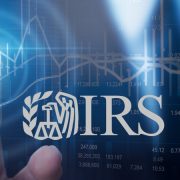


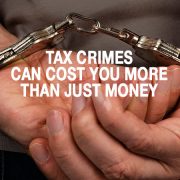


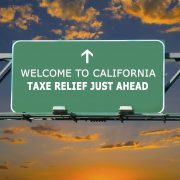
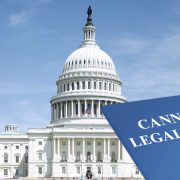

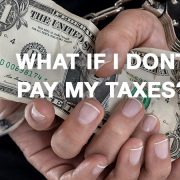
 Follow
Follow Follow
Follow